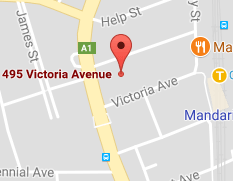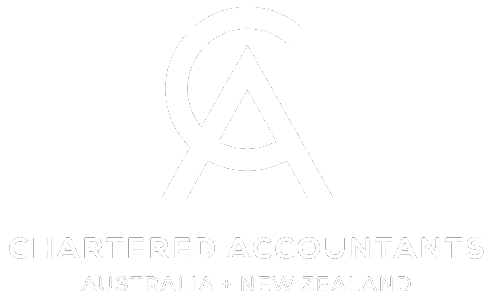WELCOME
Welcome to the special Land Tax edition of our client newsletter for 2020 where we hope to keep you informed of the important
land tax compliance issues affecting owners of land in Australia. Remember that Land Tax is a State tax and different rules apply in each State.
In this newsletter we have summarised the position in NSW. If in any doubt about your particular land tax circumstances,
please contact your StewartBrown Partner or Manager.
NSW LAND TAX REMINDER – ACTION REQUIRED BY 31 MARCH 2020
Land Tax 2020 – Registration Form
 All landowners in NSW, including Individuals, Companies, Superannuation Funds and Trusts are reminded that the due date for
lodgement of the initial return for land held as at 31 December 2019 is 31 March 2020.
If you have previously registered for land tax you do not need to complete a variation form unless your ownership or usage details
have changed and you haven’t already received a correct 2020 assessment.
All landowners in NSW, including Individuals, Companies, Superannuation Funds and Trusts are reminded that the due date for
lodgement of the initial return for land held as at 31 December 2019 is 31 March 2020.
If you have previously registered for land tax you do not need to complete a variation form unless your ownership or usage details
have changed and you haven’t already received a correct 2020 assessment.
If you own a property other than your principal residence and you have not previously registered with Revenue NSW,
or if you need to lodge a variation form, please contact us as soon as possible. Penalties and interest may be levied for late registration and
payment of land tax. On 14 October 2019 Revenue NSW announced a three month amnesty period for penalties in relation to a person’s NSW land tax obligation.
Taxpayers who own land in NSW and believe that they may have incorrectly reported their land tax obligations will not be subject to penalties on top of
any unpaid land tax when they make a voluntary disclosure. The amnesty period expires on 31 January 2020.
Land Tax applies to:
- vacant land, including vacant rural land
- land where a house, residential unit or flat has been built
- a holiday home
- investment properties
- company title units
- residential, commercial or industrial units
- commercial properties, including factories, shops and warehouses
- land leased from State or Local government
Land Tax exemptions potentially apply to:
- principal place of residence (except if the property is rented or is used for business purposes)
- the former principal place of residence of some deceased persons (subject to limitations)
- land used for primary production
- boarding houses
- low cost accommodation
- residential parks (including caravan parks)
- non-profit organisations
- retirement villages, aged care establishments and nursing homes
- child care centres
- crown or council land
Land Tax rates 2020
The land tax rate for 2020 is 1.6 per cent (plus $100) on the combined value of all taxable land in excess of the threshold.
The 2020 land tax threshold is $734,000 for all taxpayers except discretionary trusts, some unit (fixed) trusts and certain groups of companies
where the threshold is nil.
Where the taxable value of land held in NSW is more than $4,488,000 (known as the “Premium Threshold”) the land tax payable is
$60,164 for the first $4,488,000 in land value, then 2% over that amount.
Revenue NSW obtains property values from the NSW Valuer General, who values land in NSW each year.
The unimproved value of a taxable property is the value used as the taxable value of the land for land tax valuation purposes.
If you disagree with the valuation assessed to your land, you may object to the land valuation used in your land tax assessment,
but that objection must be lodged in writing within 60 days of receiving your notice of assessment.
LAND TAX SURCHARGE
If you are a foreign person who owns residential land in NSW, you must pay a land tax surcharge (“LTS”) of 2.00 per cent of the value of the land.
This is in addition to the 1.6% land tax amount.
The LTS is only payable by foreign persons owning land in NSW. It applies to all properties owned by foreign persons including their principal place of residence.
Importantly there is no tax free threshold applicable to the LTS. A foreign person can be:
- An individual
- A corporation
- A trustee of a trust
- A beneficiary of a land tax fixed trust
- A government
- A government investor
- A partner in a limited partnership
There are special rules defining whether or not entities (companies and trusts for example) are classified as foreign persons, but generally speaking an entity or trust owned substantially by a foreign person (individual or individuals) will be deemed to be a foreign person. A substantial interest for the purposes of these rules would apply where a foreign person(s) holds at least a 20% interest in the entity.
Important (Discretionary Trusts)
If you own residential land via a discretionary (or family) trust it is highly likely the trust will be deemed a foreign person and therefore the LTS will apply.
Revenue NSW Ruling G10 version 2 states that discretionary trusts are deemed to be a foreign person if any potential beneficiary is a foreign person.
It does not help if the trust never actually distributes to foreign persons. If the trustee is not excluded by the Trust Deed from distributing to
foreign beneficiaries it will still be deemed a foreign person. Given discretionary trusts usually have an extremely broad definition of beneficiaries
it is our recommendation that Trustees take action.
To fix this potential problem Revenue NSW Ruling G10 version 2 requires Trustees to amend their Trust Deeds to permanently exclude
foreign beneficiaries. Please contact us if you need assistance with reviewing your existing Deed and arranging amendment (if needed).
If you are a foreign person and own land in NSW you must inform Revenue NSW. It may well be that you are liable for the LTS but not land tax
(for example if your NSW land value falls below the threshold for land tax assessment purposes).
Whilst a principal place of residence is not exempt from the LTS, most properties exempt for land tax assessment purposes will be exempt from the LTS.
Similar surcharges exist in other States although the rules can be quite different between States.
Please consult with your StewartBrown Partner or Manager if you need further assistance with land tax or the land tax surcharge.
To download the PDF version of this newsletter please click here.



